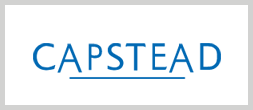
Capstead Mortgage Corporation (NYSE:CMO) invests almost exclusively in short duration Adjustable Rate Mortgage, or ARM, agency securities. There are three attributes in this statement that signify Capstead Mortgage Corporation (NYSE:CMO)’s highly conservative strategy.
First, Capstead Mortgage Corporation (NYSE:CMO) invests only in MBS securities that are guaranteed by the government or government sponsored entities, thus nullifying any credit risk. Secondly, Capstead Mortgage Corporation (NYSE:CMO) invests almost exclusively in ARM securities. The price of ARM securities, and thus Capstead’s book value per share, is less sensitive to changes in interest rates as compared to fixed-rate MBS. Thirdly, even within ARM securities, Capstead focuses on short duration securities in order to further reduce sensitivity to rising interest rate.
Second-quarter highlights
As a result of its conservative strategy, Capstead reported stable second-quarter earnings and a relatively small decline in book value per share. Capstead reported a core EPS of $0.27 for the quarter, as compared to $0.31 in the first-quarter. The company’s net interest spread declined by 15 basis points to an average of 1.00% for the quarter. The decline in this spread was largely due to a lower yield on the MBS portfolio as a result of an increase in prepayments; the average Constant Prepayment Rate, or CPR, jumped to 22.74% for the quarter as compared to 19.65% in the previous quarter.
Most importantly, Capstead’s book value per share declined 5.9% sequentially; however, only 3.8% of the decline is attributed to the changes in pricing as a result of rising rates. The other 2.1% of the loss was due to the redemption of the high-cost perpetual preferred shares, the proceeds of which were used to issue lower-cost perpetual preferred capital. The company’s management expects this loss in book value per share to be fully recovered in around three years’ time.
It’s all relative …
While Capstead’s results don’t look spectacular in isolation, I believe that the company has done an excellent job in preserving its book value at a time when its peers are struggling.
Hatteras Financial Corp. (NYSE:HTS), one of Capstead’s closest competitors, also invests in agency hybrid ARMs. In its second quarter earnings results, Hatteras Financial Corp. (NYSE:HTS) reported an EPS of $0.66 as compared to $0.62 in the first quarter. The company’s net interest spread declined by 18 basis points sequentially to 0.93% for the quarter as the CPR increased from 19% in the first quarter to 20.8% in the second quarter.
The real shock from Hatteras Financial Corp. (NYSE:HTS) came in the form of a sharp drop in its book value per share, which dropped by a whopping $6 per share, or 21.3% sequentially, to $22.18 by the end of the quarter. The sharp decline in book value was a result of the rapid decline in the longer duration hybrid ARM prices in the second half of June as mortgage basis for such ARMs widened.



